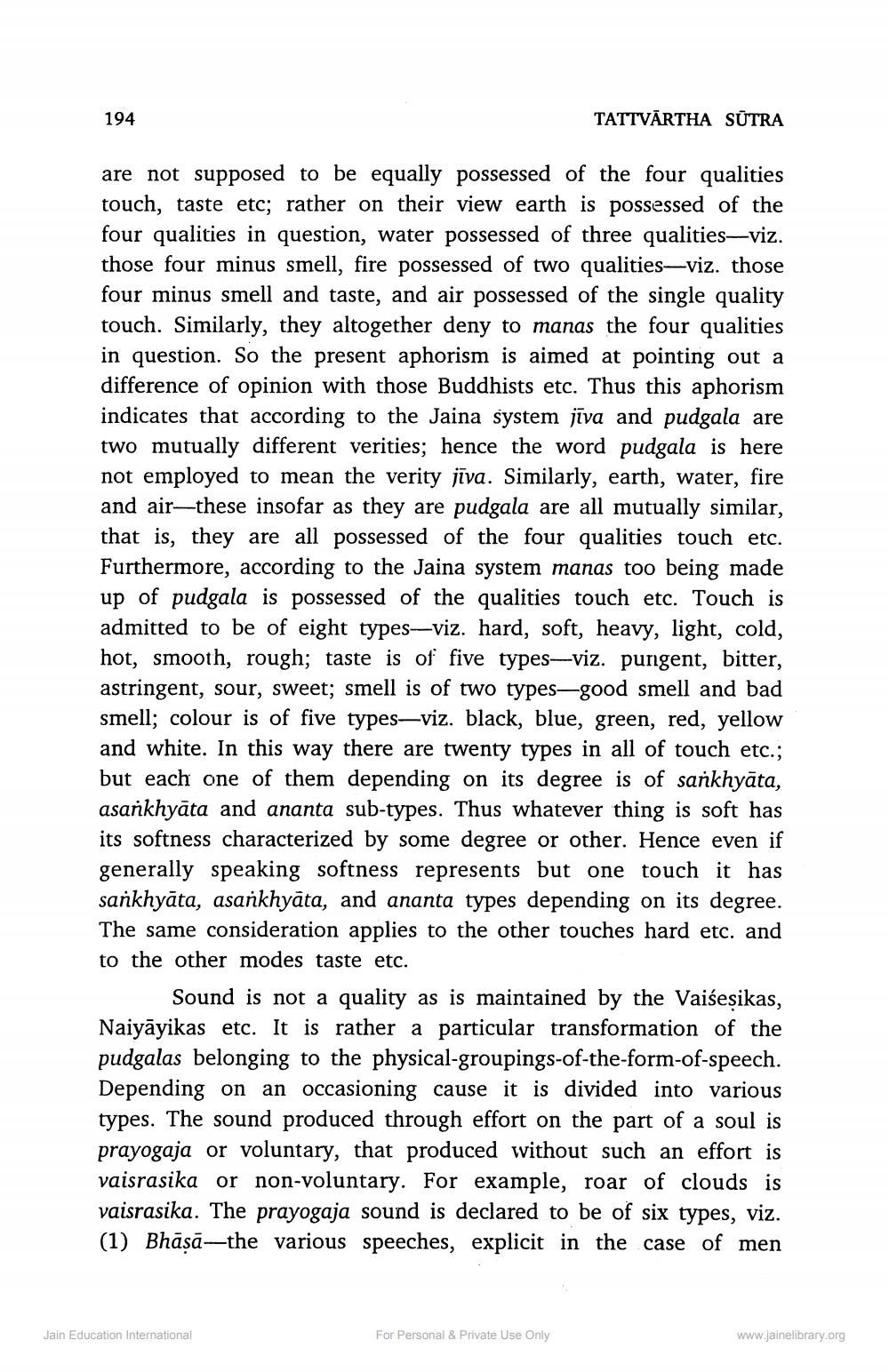________________
194
TATTVĀRTHA SŪTRA
are not supposed to be equally possessed of the four qualities touch, taste etc; rather on their view earth is possessed of the four qualities in question, water possessed of three qualities—viz. those four minus smell, fire possessed of two qualities—viz. those four minus smell and taste, and air possessed of the single quality touch. Similarly, they altogether deny to manas the four qualities in question. So the present aphorism is aimed at pointing out a difference of opinion with those Buddhists etc. Thus this aphorism indicates that according to the Jaina system jīva and pudgala are two mutually different verities; hence the word pudgala is here not employed to mean the verity jīva. Similarly, earth, water, fire and air—these insofar as they are pudgala are all mutually similar, that is, they are all possessed of the four qualities touch etc. Furthermore, according to the Jaina system manas too being made up of pudgala is possessed of the qualities touch etc. Touch is admitted to be of eight types—viz. hard, soft, heavy, light, cold, hot, smooth, rough; taste is of five types—viz. pungent, bitter, astringent, sour, sweet; smell is of two types—good smell and bad smell; colour is of five types—viz. black, blue, green, red, yellow and white. In this way there are twenty types in all of touch etc.; but each one of them depending on its degree is of sankhyāta, asankhyāta and ananta sub-types. Thus whatever thing is soft has its softness characterized by some degree or other. Hence even if generally speaking softness represents but one touch it has sankhyāta, asankhyāta, and ananta types depending on its degree. The same consideration applies to the other touches hard etc. and to the other modes taste etc.
Sound is not a quality as is maintained by the Vaiseșikas, Naiyāyikas etc. It is rather a particular transformation of the pudgalas belonging to the physical-groupings-of-the-form-of-speech. Depending on an occasioning cause it is divided into various types. The sound produced through effort on the part of a soul is prayogaja or voluntary, that produced without such an effort vaisrasika or non-voluntary. For example, roar of clouds is vaisrasika. The prayogaja sound is declared to be of six types, viz. (1) Bhāṣā—the various speeches, explicit in the case of men
Jain Education International
For Personal & Private Use Only
www.jainelibrary.org




